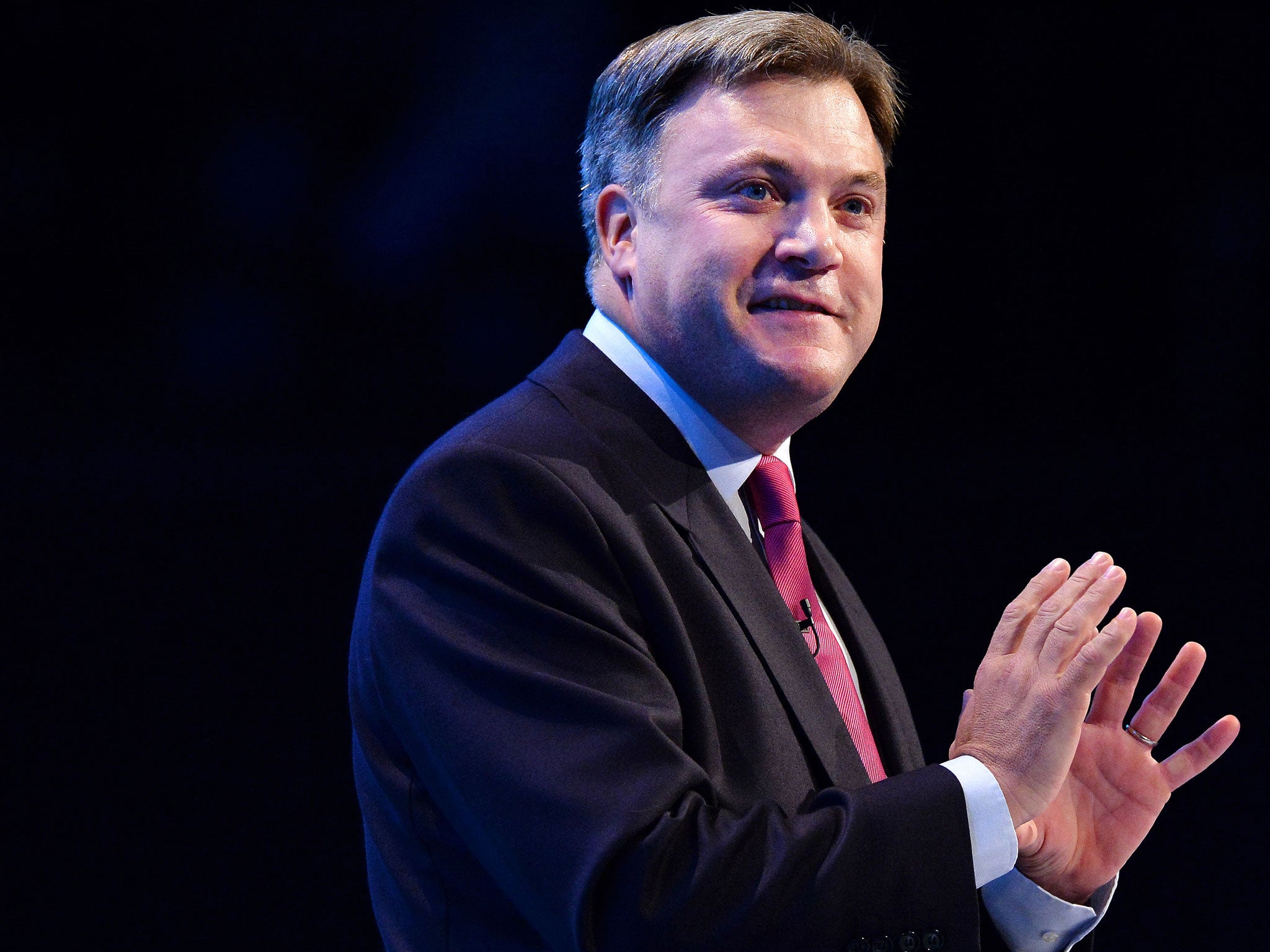Labour toughens fiscal policy with promise to reduce national debt
Shadow Chancellor: ‘We will have to govern with less money ... we will have to make cuts too.’

A Labour government would run an annual budget surplus “as soon as possible” in the next parliament, Ed Balls is expected to say on Saturday as he tries to rebuild his party’s economic credibility.
In what Labour hailed as a significant toughening of the party’s fiscal policy, the shadow Chancellor will pledge that the stockpile of national debt would fall in the five-year parliament ending in 2020. He is expected to tell the Fabian Society in London: “We will have to govern with less money, which means the next Labour government will have to make cuts too.”
Mr Balls will announce a “binding fiscal commitment” under which Labour would legislate for “tough rules” within 12 months of next year’s general election. But he will leave himself some room for manoeuvre, saying the speed of deficit-reduction would “depend on the state of the economy and public finances” and he will not set out specific figures at this stage.
The speech will be seen as Mr Balls’s response to internal Labour sniping at his performance since the economy has returned to growth. Some Labour figures would like to see him ousted from his Treasury post but Mr Miliband has said he will remain there.
Labour’s new stance moves the party closer to matching the fiscal strategy set out by George Osborne in his autumn statement last month. The Chancellor promised to run a budget surplus by the end of the next five-year parliament in 2020 and aims to clear the annual deficit by 2018.
Mr Osborne plans to lock in his deficit-reduction programme for the next parliament through a “charter for budget responsibility”, which he will put to a Commons vote later this year. This was seen as a trap for Labour but Mr Balls’s speech suggests his party might vote for the charter.
However, Labour’s new approach will not satisfy its critics. It would still give the party room to spend more than the Conservatives on building projects, as Ed Miliband wants to do in order to show that Labour would “make a difference” .This would allow him to deliver his pledge to build more than 200,000 homes a year by 2020 through higher borrowing. The Tories will argue that this would undermine Labour’s promise to balance the books – and could claim that the party would have to raise taxes to make its sums add up.
Insisting that Labour will not “duck the hard choices”, Mr Balls is expected to say: “Without fiscal discipline and a credible commitment to eliminate the deficit, we cannot achieve the stability we need. But without action to deliver investment-led growth and fairer choices about how to get the national debt down while protecting vital public services, then fiscal discipline cannot be delivered by a Labour government – or, in my view, by any government.”
Labour would “look at new ways of delivering public services suited to tougher times” – a hint of reforms to boost efficiency. Mr Balls will say that departments with ring-fenced budgets will still be subject to Labour’s “zero-based” review “because it is vital that we get maximum value for money for every pound spent”.
He will insist: “No responsible Opposition can make detailed commitments and difficult judgments about what will happen in two or three years’ time without knowing the state of the economy and public finances that we will inherit.
“With the deficit we inherit currently set to be nearly £80bn and the national debt still rising, it will be up to the next Labour government to finish the job.” His “binding fiscal commitment” would abolish “the discredited idea of rolling five-year targets” under Mr Osborne.
Labour has pledged to stick within the present Government’s day-to-day spending totals for the 2015-16 financial year.
Join our commenting forum
Join thought-provoking conversations, follow other Independent readers and see their replies
Comments
Bookmark popover
Removed from bookmarks